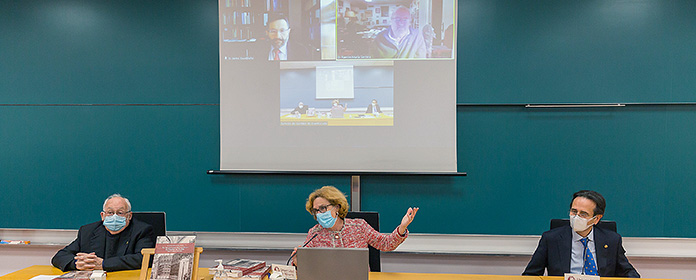Jesús Miguel Santamaría explains future European perspectives on the environment
Seeking global solutions and implementing the climate and energy strategy for 2030, among the objectives, according to the professor of the School of Sciences.
University of Navarra professor Jesús Miguel Santamaría, advisor European environmental issues, stressed that Europe's role in this subject focuses on the search for global solutions and the implementation of a new strategic framework on climate and energy for 2030. Santamaría also explained the different projects and infrastructures that are being developed worldwide, during the course of the Science Weeks that take place at the academic center.
As priority objectives, he stressed the sustainable use of resources, pollution prevention, global change and the mitigation of natural risks. In his opinion, "the way to tackle them is through international partnership , making the most of the efforts invested". In this context, the"European Strategy Forum on Research Infrastructures (ESFRI)", a forum for the development of research infrastructures of pan-European interest, was created. Specifically, ESFRI has in its roadmap eight major projects related to the thematic areas: atmosphere, oceans, land, climate and ecosystem services.
In Santamaría's words, "these infrastructures are essential for acquiring new knowledge and methodologies; transferring knowledge to other sectors, including politicians; providing information to citizens; and training students, researchers and future environmental experts".
Future needs
According to the expert, although interest in the environment has only emerged in recent years,"it is onlynow that we are aware that it is necessary to respect it because it has a direct impact on people's quality of life". Europe knows this and, thanks to the work collection of data and the maintenance of existing infrastructures and the creation of new ones, it has detected future needs on which it will work in the coming years.
Potential areas of interest include projects in the geosciences area related to the water cycle and marine research (such as aquaculture and oceanographic vessels), or the management of waste and eco-industrial processes. It also foresees the creation of centers integrating scientific collections (biological and geological) and e-infrastructures at research environmental on a global scale.





